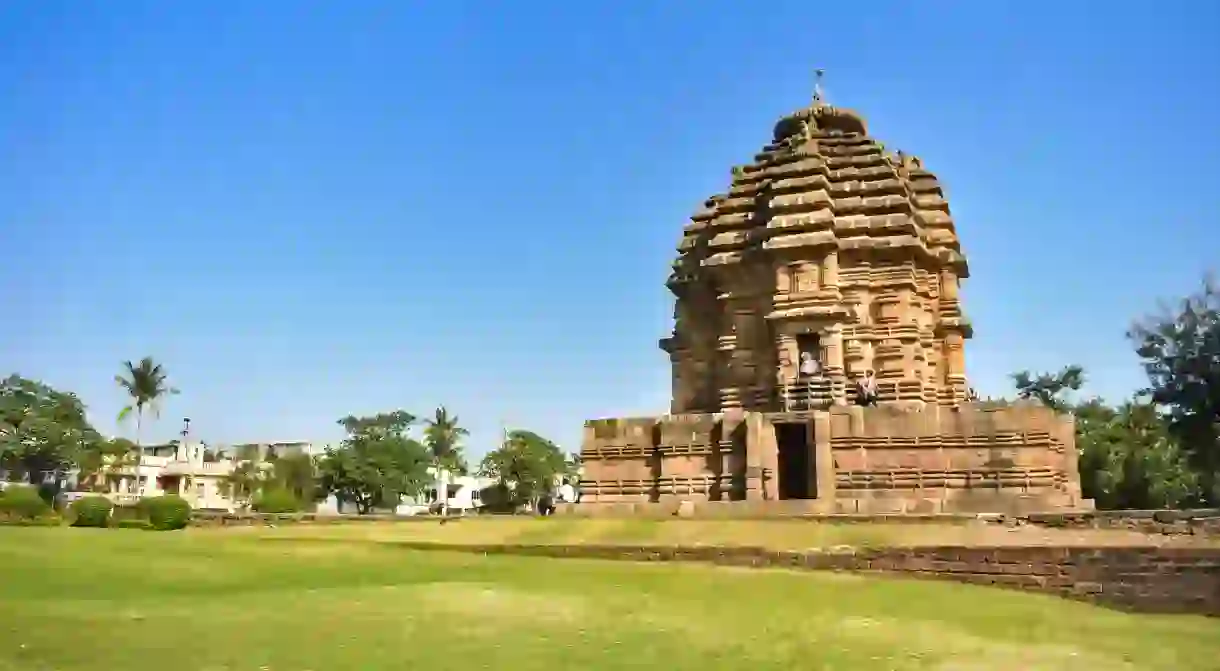Best Things To Do And See In Bhubaneswar

Bhubaneswar is one of India’s most famous destinations. Although it’s dubbed as ‘Temple City’, Bhubaneswar is much more than that, boasting everything from architectural marvels to natural beauties. We explore the 10 best things to see and do when visiting Bhubaneswar.
Did you know – Culture Trip now does bookable, small-group trips? Pick from authentic, immersive Epic Trips, compact and action-packed Mini Trips and sparkling, expansive Sailing Trips.
Lingaraj Temple
The splendid Lingaraj Temple (king of lingas, the phallic symbol of Lord Shiva) is a masterpiece and the culmination of the revolution of temple architecture in Odisha. The 54 metre high buildings is surrounded by dozens of smaller temples and shrines in an extensive complex. The main temple is restricted to Hindus, but there is a viewing platform from which one can catch a sight. Over a thousand years old, the temple stands as a testament to the marvellous Kalinga type of architecture and is filled with extraordinary detail and traditions: from the granite block representing the lord and bathed daily in milk, water and bhang (marijuana) to the two moustachioed lions at the main gate.
Nandankanan Zoo
Spread over 400 hectares in the Chandaka forest lies the impressive Nandankanan Zoological Park. Located on the banks of Kanjia Lake, this zoo is home to over 67 kinds of mammals, 81 species of birds and 18 varieties of reptiles. It was the first zoo in India to join the World Association of Zoos and Aquariums (WAZA) and also houses a botanical garden. Visitors can see black panthers, white tigers, gharial crocodiles and many other animals, birds and reptiles in an attempt to maintain the natural balance of nature against the growing urbanisation of Bhubaneswar.
Price: Budget
Opening hours: 7.30am-5.30pm (April – September), 8am-5pm ( October – March ); Closed Mon
Udayagiri & Khandagiri Caves
Six kilometres to the west of the city lay the Udayagiri and Khandagiri caves. These caves provide a brief look into the history of the Kalinga Empire and Jain religion. The caves have derived their names from the hills on which they are situated, facing one another across the road. They are said to have been chiselled out for Jain ascetics in the 1st century BC. The caves have been enumerated according to Archaeological Survey of India (ASI), Hatigumpha (Cave 14) and Ganehsagumpa (Cave 9) are especially well known. Cave 1 is adorned by sculptural friezes while Carved figures of women, elephants, athletes and geese carrying flowers are in the Ananta Cave (Cave 3).
Odisha State Museum
Established in 1948, the Odisha State Museum is a treasure trove of artifacts highlighting the glorious history of the state and the dynasties which ruled it for centuries. It houses the best collection of rare palm-leaf manuscripts, Bronze Age tools, scroll paintings, folk musical instruments, and Buddhist and Jain sculptures. The museum is well maintained and is a pleasure to visit.
Pathani Samanta Planetarium
The Pathani Samanta Planetarium was established to generate awareness of astronomy, astrophysics and space science. The planetarium offers regular shows about outer space which are loved and attended by a lot of school kids; the planetarium also conducts workshops for astronomy enthusiasts – think night sky gazing, display of astronomical instruments etc. There are also regular conferences, and an extensive library with an impressive number of books in the fields of astronomy, environment, science and technology.
Indira Gandhi Park
Indira Gandhi Park, also known as the IG Park, is one of Bhubaneswar’s most famous parks and carries a huge historical significance in India’s political history. This park was the place where late Prime Minister Indira Gandhi delivered her last public address before she was assassinated. Today, this park is filled with joggers in the early morning and by families looking to spend some quality leisure time. It is beautifully decorated with flower gardens and fountains making it one of Bhubaneswar’s most loved and most relaxing places.
Rajarani Temple
Built around 1100, this centuries-old temple is perhaps the most renowned temple in Bhubaneswar. The temple derives its name for the wonderful red and gold sandstone, locally known as Rajarani, which was used to build it, and it is surrounded by gardens and paddy fields. The unique feature is the absence of a presiding deity. It is locally called the ‘love temple’ for the many intricate and beautiful carvings of nymphs, and erotic scenes of women and couples.
Tribal Museum
The Orissa Museum of Tribal Arts and Artifacts, popularly known as the Tribal Museum, is an important place in Bhubaneswar. It is located around three kilometres from the city’s railway station, and is the best place to learn and understand the tribal communities in Orissa. Over 62 tribal communities call the state of Orissa their home. The museum houses around 2,247 artifacts and displays a rich collection of tribal instruments, dresses, weapons, jewellery, textiles giving one a unique insight into the lives of the tribal communities.
Dhauli Giri
Also known as the peace pagoda, Dhauli Giri is a Buddhist structure built jointly in 1972 by the Japan Buddha Sangh and the Kalinga Nippon Buddha Sangh. The stupa has a mushroom-like dome and decorated with stone panels. The main panels are adorned with a reclining Buddha, an elephant procession, Bodhi tree and the footprints of Buddha bearing the chakra (wheel). The panels also display Emperor Ashoka renouncing war by offering his sword to Buddha at Dhauli Giri. There are also plenty of other ancient sculpture and diverse art forms found at the site.
Regional Science Park
Spread over an eight-acre landscape lays the Regional Science Park. It has 84 interactive exhibits which help people to understand and appreciate science and it’s role on a global and local scale. In the park centres, tourists can view exotic plants or can understand the underlying principles of motion, from the molecular level to the motion of planets, or come face to face with three-dimensional figures of dinosaurs.













